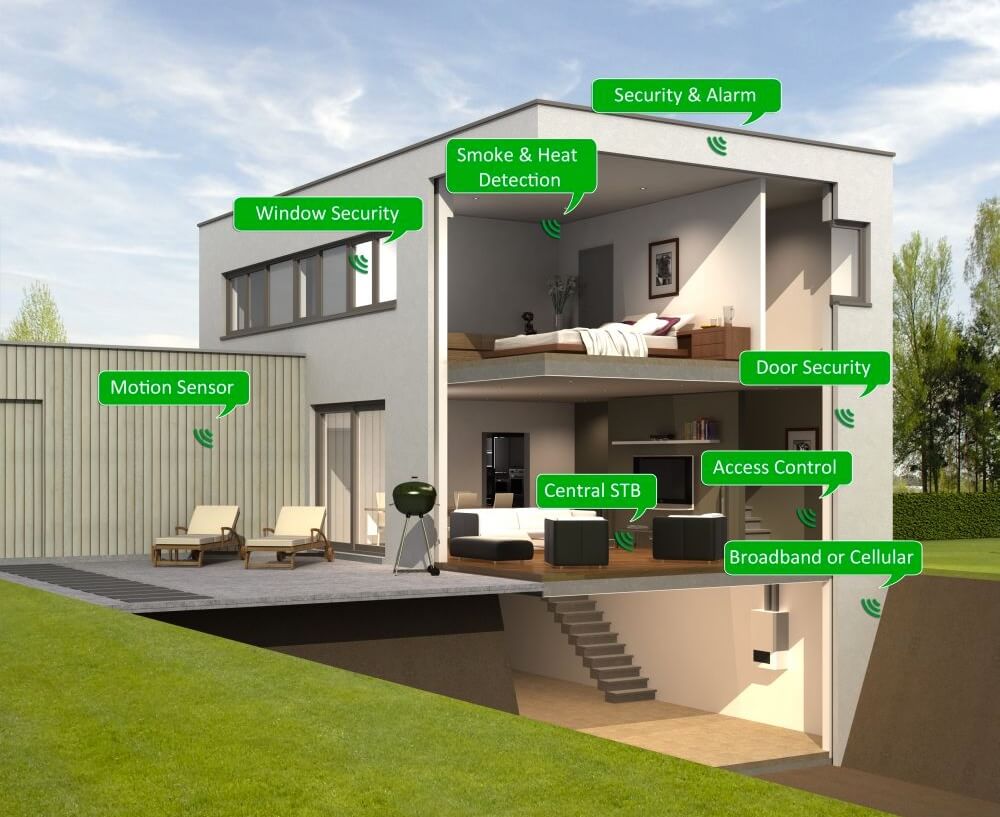
It’s the one piece of tech equipment we all have and use almost every day, yet, know very little about.
I’m talking about your home broadband router/gateway. The non-descript black box likely installed somewhere in your abode by your cable or satellite service provider. In the early days of internet access, gateway boxes were often separate from both the TV service set-top box and a Wi-Fi router but today, it’s typically all consolidated together into a single unit.
Very few people ever dive into the details of a gateway/router’s operation. The few who do are typically greeted with an arcane, browser-based interface loaded with networking buzzwords and engineering jargon. Most people view it as a set-and-forget, utility-focused device, not unlike the gas and power meters that denote where electricity enters your home.
Yet, as we transition into a world where more and more connected devices are moving into our homes and our dependence on various internet-based services continues to grow, it’s becoming increasingly clear there needs to be a radical rethinking of what these devices do and, more importantly, how they operate.
Instead of being relegated to a corner and untouched, a truly smart home gateway should be at the very forefront of any consumer’s tech experiences at home.
Imagine this: a device that could leverage either its own sensors or even data from your other devices to physically map out your home, then show you where the connected devices are and what they’re doing. The device could potentially do this by either having you take a few pictures, shoot some video, or leverage the kinds of 3D-depth sensors that are being leveraged for augmented and/or virtual reality-based products.
Even better, it should be able to physically and visually map out things like WiFi (or cellular) strength in different parts of your house. Because those can change, it should be able to do that on a dynamic basis. In fact, smart service providers could even leverage the data to suggest things like adding a WiFi extender for your upstairs bedroom or the basement office.
On top of basic service quality questions, a redesigned gateway experience should be able to answer questions about why a particular service or device isn’t working. It’s not just that it has connectivity, but is it getting the kind of messages/data it should? Admittedly, this one would take a bit more standardization work because there would have to be agreement on devices sending out messages saying “this is what I need” and verification they were receiving it. Imagine having that capability—in plain English—in terms of helping people troubleshoot some of their common internet access-related issues.
Another critically important capability that could build on these network traffic analysis skills would be related to privacy and security. Wouldn’t you like to know what kind of data is flowing into and out of your home? Again, this would have to be translated into understandable terms—which is challenging to do—but it could be very useful. Plus, intelligence built into the gateway/router could watch for and block potential security issues and could even be kept constantly up-to-date by leveraging some of the new pattern matching-based deep learning tools that are becoming available.
As new devices and/or services are added to your home technology arsenal, this rethought gateway should leverage its visual map to show you where the new device and/or services are running, what other devices they may or may not be connected to, and whether or not they’re working properly. It’s easy to lose track of all the devices and services that people are adding and removing, so the gateway could also serve as a technology inventory that tracks everything and potentially reminds you to update, replace, or even pay for any used services.
Given the critical role for-pay services are likely to have in future smart home and consumer Internet of Things (IoT) applications, this last capability could be a lot more important than it first appears.
The bottom line is that, instead of being relegated to a corner and untouched, a truly smart home gateway should be at the forefront of any consumer’s tech experiences at home. Unfortunately, I’m not aware of any vendors with products close to coming to market with the kinds of capabilities I’ve described, so this may all be a pipe dream for a while. I’m convinced, though, that the right kind of design and user experience could turn home gateways from basic necessary evils into the visual centerpiece of our future connected homes.
(I’ll be the chairman of Day 1 of the Smart Home Summit to be held in Palo Alto, CA on November 1, 2016. If you’d like to find out more about the event, you can click here.)
Bob O’Donnell is the founder and chief analyst of TECHnalysis Research, LLC a technology consulting and market research firm. You can follow him on Twitter @bobodtech. This article was originally published on Tech.pinions.
https://www.techspot.com/news/66225-rethinking-smart-home-gateways-or-why-need-more.html